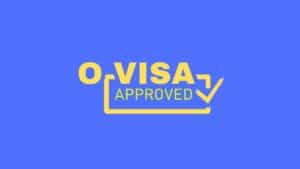Introduction
US government allows individuals to travel to the US on an employment visa. The employment-Based First Preference EB-1 category allows an alien to travel to the US and further provides an option to apply for a green card. The EB-1 green card is the highest-ranking employment-based green card available in the US.
If you are an alien of extraordinary ability, an outstanding professor or researcher, or a specific multinational executive or manager, you may be qualified for an EB-1 visa. Certain standards for each occupational group must be satisfied to get the visa. This article will examine the variance in eligibility requirements for EB-1A, EB-1B, and an EB-1C visa.
What are the EB-1A, EB-1B, and EB-1C visa categories?
Employment-Based first preference or EB-1 visa is subdivided into three categories – EB-1A, EB-1B, and EB-1C.
EB-1A is the category for individuals possessing extraordinary abilities. They need to demonstrate exceptional ability in the sciences, arts, education, business, or athletics through sustained national or international acclaim.
EB-1B classification is for “Outstanding Professors and Researchers.” The alien has to demonstrate international recognition for his outstanding achievements in a particular academic field. He must have at least three years of teaching or research experience in that academic field. Further, the alien must be coming to the US to work as a tenured or tenure-track professor or equivalent research post at a university, institution of higher education, or private company.
EB-1C visa qualification allows an alien immigrant to come to the US on an employment-based visa if employed outside the United States for at least one year in the three years preceding the petition. The US petitioner must have been doing business for at least one year, have a qualifying relationship with the entity you worked for outside the US, and intend to employ you in a managerial or executive capacity.
Now we have understood the different EB-1 classification, let us see what the eligibility requirement under each of the category is:

Eligibility requirements for EB-1A classification
Possessing extraordinary ability in the field of sciences, arts, education, business, or athletics is not enough if you cannot demonstrate or provide evidence of such ability. USCIS wants to make sure that you are not lying on your application and you possess such skills. It wants evidence and has provided criteria that you have to fulfill to take benefit under the EB-1A classification.
USCIS provides that you should either give evidence of one-time achievement in the respective field claiming extraordinary ability. One-time achievement will include Pulitzer, Oscar, or Olympic Medal if you have received it in your lifetime. An alternative to that, you can provide evidence that you are meeting 3 out of 10 criteria listed by the USCIS to qualify under the EB-1A category. The list of criteria can be found here.
Eligibility requirements for EB-1B classification
Likewise, you have to demonstrate that you fulfill the requirements laid down to be an EB-1B beneficiary. There are six criteria provided by the USCIS, out of which you have to meet a minimum of 2 criteria. The list of criteria can be found here.
Eligibility requirements for EB-1C classification
USCIS does not mention any list of criteria for the aliens applying under this category. Instead, you have to provide evidence of the following thing:
- Your petitioning employer must be a US employer and intend to employ you in a managerial or executive capacity.
- The petitioner must have been in operation in the United States for at least one year as a legal entity with a qualifying link to the entity that hired you in a managing or executive position overseas.
There are some similarities and differences if we look at other features at the classification based on the filing of the petition, labor certification, etc.
Whether Labor certification is required or not?
The beneficiary need not worry about the labor certification requirement irrespective of whichever classification he falls into. USCIS has omitted the requirement of labor certification for EB-1A, EB-1B as well as EB-1C classification.
Whether Offer of Employment is required or not?
USCIS allows the aliens with extraordinary ability under the EB-1A category to file their Form I-140 petition by themselves without the need of a petitioning employer. Therefore, an offer of employment is not a requirement to apply under this classification.
However, for both EB-1B and EB-1C, the beneficiary under these categories cannot file their Form I-140 petition themselves. USCIS made it mandatory for them to provide an offer of employment from a prospective US employer. US employer has to file a petition under Form I-140 for the beneficiary under this category.
Further, the US employer, along with filing the petition, must be able to demonstrate a continuing ability to pay the offered wage as of the priority date. This is to make sure that the US employer has the continued capacity to sponsor the employer. The employer can show his ability to pay through his annual income reports, income tax returns, or audited financial statements.
Conclusion
As an individual possessing extraordinary ability or being an outstanding professor and researcher or a manager or executive in a multinational company, USCIS allows you to enter the US on an employment-based – first preference visa. You have to make sure that you are applying in the right category of visa and be certain that you fulfill all the requirements under that category. Our immigration attorneys are happy to provide you with the necessary direction for your immigration application. Make sure to reach out to us for any immigration-related help.








 by Prozco®
by Prozco®